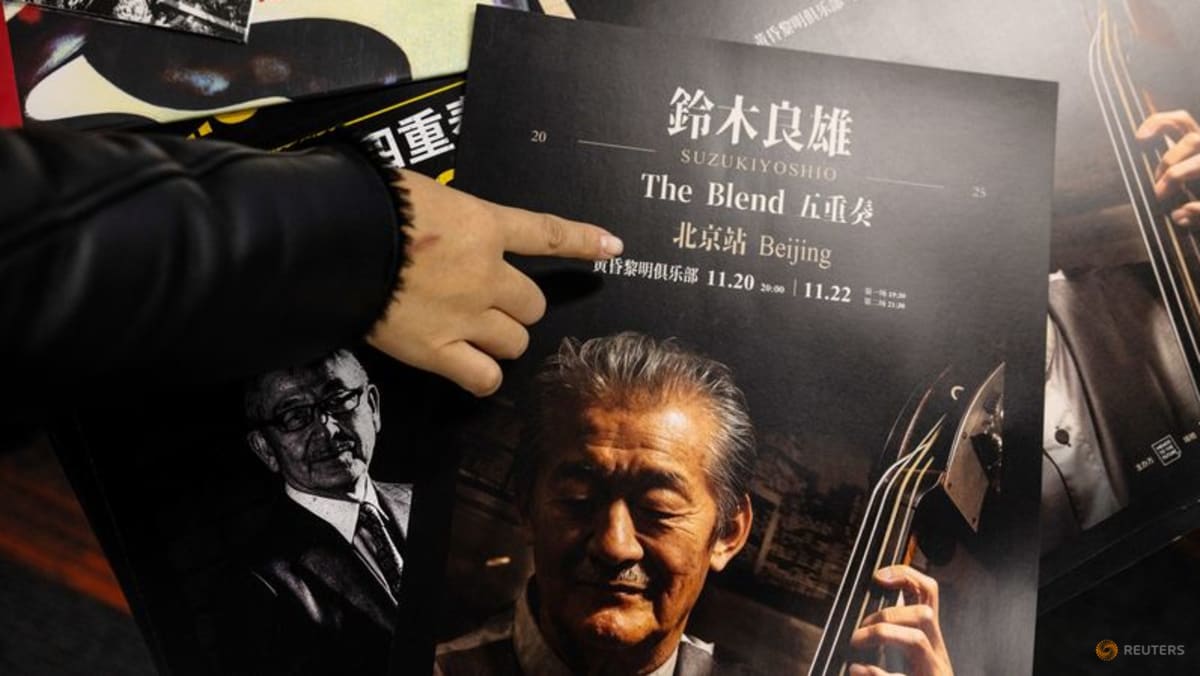China Cancels Japanese Music Concerts as Diplomatic Tensions Soar Over Taiwan Remarks & Economic Boycotts
 China
International Relations
China
International Relations

China has abruptly cancelled numerous concerts by Japanese musicians, including jazz bassist Yoshio Suzuki, as diplomatic tensions escalate following Japan's re
China's Cultural Crackdown: Japanese Concerts Canceled Amid Escalating Diplomatic Tensions Over Taiwan
Escalating diplomatic friction between Beijing and Tokyo has led to a sweeping cancellation of concerts featuring Japanese musicians across China. The abrupt moves follow recent remarks by Japan's new Prime Minister Sanae Takaichi regarding Taiwan, which China views as a grave provocation.
Music Events Abruptly Halted
The repercussions were immediate and impactful. Veteran Japanese jazz bassist Yoshio Suzuki, 80, and his quintet, after months of navigating China's visa process, were mid-soundcheck in Beijing on Thursday, November 20, 2025, when plain-clothes police intervened. Christian Petersen-Clausen, a Norwegian concert promoter with 13 years in China, recounted the venue owner's terse message: "all concerts with Japanese people are cancelled – and there is no discussion." Suzuki's band, reportedly "crushed" by the news, had been "absolutely excited" to perform.
Similar cancellations have plagued about a dozen Japanese music events in major Chinese cities this week. Authorities have warned venues about further cancellations for the remainder of 2025, prohibited new applications for Japanese performers next year, and banned promoters from sending promotional messages about upcoming Japanese gigs.
The Spark: Taiwan Remarks
The catalyst for this cultural crackdown was Prime Minister Takaichi's statement earlier this month. She suggested that a Chinese assault on Taiwan, if it threatened Japan's survival, could trigger a military response from Tokyo. China, which asserts sovereignty over democratically governed Taiwan, vehemently condemned her comments and promised "consequences."
Beijing's initial retaliatory measures focused on economic sanctions, including travel boycotts to Japan and a ban on Japanese seafood imports. However, these actions have now visibly extended into the cultural sphere, directly impacting artists and fans.
Widespread Disruption and Fan Outcry
The cancellations have caused significant public outcry. Japanese singer KOKIA's Beijing concert on Wednesday evening was unexpectedly halted, leading to dozens of furious complaints on social media. Fans, who had queued until the scheduled start, were told by KOKIA's team that "the band is ready, but the venue won't let them perform." Videos circulating on X (formerly Twitter) on Thursday captured large crowds chanting "Give us our money back!" outside the venue.
Additionally, Japanese rapper KID FRESINO's China tour was indefinitely postponed on Friday, according to his Chinese promoter's social media announcement.
China's History of Cultural Coercion
This isn't the first time China has employed cultural boycotts as a tool of diplomatic pressure. Following the 2016 THAAD missile dispute, major K-pop acts have been barred from performing in China, and Korean dramas and cultural products remain under an unofficial ban on Chinese platforms.
These cultural restrictions, however, come at a cost to China itself. Petersen-Clausen points out that the cancellations hinder efforts to boost spending on services amid a prolonged economic slowdown, impacting local support staff, and leading to financial losses from canceled flights and hotel bookings. He also highlighted that live music offers a crucial outlet for many young Chinese citizens dealing with economic and life pressures, many of whom are disconnected from international politics. "We don't see (anti-Japanese) sentiment at these concerts," he stated, noting that "politics" are rarely brought into such events by attendees.